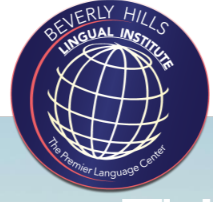Mandarin, also known as Putonghua, is the capital language of China. There are 6 major dialects and more than 200 individual dialects spoken among Chinese people. Mandarin is the lingua franca among those who come from different regions and do not share their native dialects.

Mandarin, also known as Putonghua, is the capital language of China. There are 6 major dialects and more than 200 individual dialects spoken among Chinese people. Mandarin is the lingua franca among those who come from different regions and do not share their native dialects.
The term “Mandarin” in fact refers to the language that was spoken only among government officials in ancient China. Ordinary people were never taught in “Mandarin” in ancient China.
Putonghua, which means “the common language,” is the more accurate term that Chinese people refer to as their capital language. However, “Mandarin” has become the most accepted term in English which indicates the national language of China.
Most students in China were taught in Mandarin nowadays (except those who live in rural areas). There is a practical value in learning Mandarin for traveling or doing business overseas. Even in regions where Cantonese or other dialects are dominated, Mandarin can still be understood by most people.
Our instructors’ passion is to teach practical and conversational Chinese that is spoken every day in a fun and professional approach, with our BIAM track (Beginner-Intermediate-Advanced-Movie) and TBLT approach (Task-Based Language Teaching).
We offer a range of Chinese courses, suitable for all levels from complete beginner to advanced. Each course contains an audio lesson of engaging conversations between two native speakers.
Transcription
Our course transcription is supplementary learning material to the raw and authentic Chinese podcast lesson. Follow along with the transcription to reinforce your listening skills.
Vocabulary + Grammar
Reinforce difficult vocabulary with our bilingual word list in each lesson, complements with the audio lesson and the transcription. You can review grammar and vocabulary to form your own sentences.

As the most spoken language in the world, Mandarin is an essential language for many purposes, including business and travel. With Berlitz, our Mandarin classes focus not only on the pillars of the language, but also on the fundamentals for speaking the language.

WWL offers face to face and remote language courses. Language research tells us that no matter the age, all of us learn our second (or third or fourth!) language the same way we learn our first language.

Learning china course language will not only increase your chances of finding work opportunities but it's also been shown to increase your earnings.

As a native speaker of Mandarin, there are several aspects of American English accent learning that you may find troublesome. In sessions with English Accent Tutor, your coach will complete an assessment to design an individualized treatment plan.

We offer Chinese (Mandarin) classes for all levels of students, and take pride in providing L.A.'s premier Chinese (Mandarin) instruction, with highly educated, native-speaking Chinese (Mandarin) teachers and university texts.
© 2025 coursetakers.com All Rights Reserved. Terms and Conditions of use | Privacy Policy